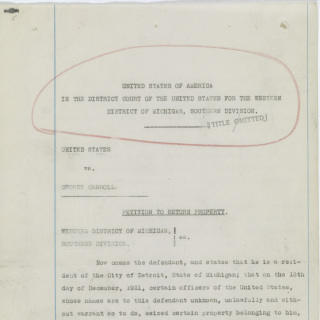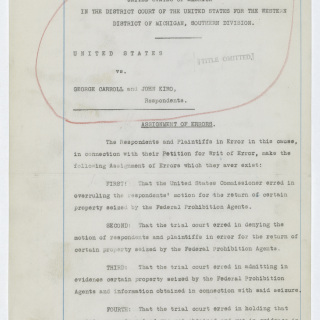Automobile Exception 1925
Undercover Federal Prohibition agents met with George Carroll in Detroit to discuss buying liquor. A few months after their initial meeting, the Prohibition officers spotted Carroll’s car, pulled him over, discovered whiskey hidden in the seats, and arrested him. Carroll appealed his case, claiming that the liquor was seized without a warrant in violation of the Fourth Amendment guarantee against “unreasonable searches and seizures.”
In Carroll v. United States, the U.S. Supreme Court upheld the warrantless seizure of Carroll’s liquor and created the automobile exception. For practical reasons and as long as there is probable cause, a warrant does not have to be secured for the search of vehicles because automobiles can move quickly.

